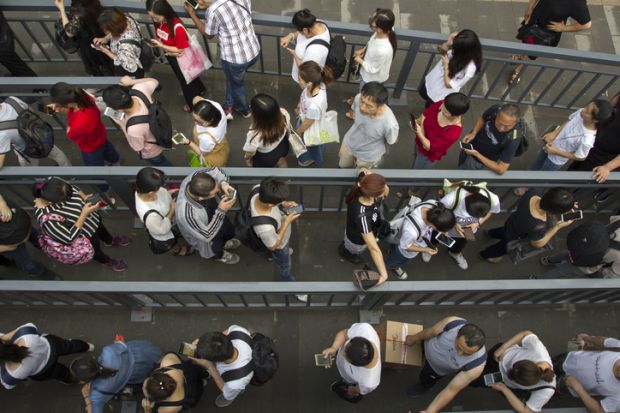China has launched a new university enrolment scheme that prioritises scientific skills.
Ministry of Education guidance says that the Qiang Ji plan aims to cultivate talent specialising in “high-end computer chips and software, smart technology, material science, advanced manufacturing, national security and social science professionals in short supply”.
The same document also announces that “universities will stop independent admissions from 2020 onwards”.
Introduced in 2003, the independent admissions programme served as a supplement, or sometimes alternative, to the gao kao, the notoriously tough entrance exam in China. Under independent admissions, around 90 participating universities could choose candidates based on academic competence, personality and “specialities”, ranging from inventions to creative writing, for less than 5 per cent of total enrolment every year.
Under the Qiang Ji admissions plan, gao kao scores will make up at least 85 per cent of the final mark, and will be considered alongside assessments by universities and a “comprehensive review”.
Xianjun Li, a secondary school teacher in Hubei who has spent several decades campaigning for educational reforms, said that independent admissions had a “good policy intention”. “The policy was exploited by some people,” said Mr Li, who explained that the prevailing culture of fraud fuelled misconduct “from fabricated grades to fake reference letters, involving students, parents, teachers and even the grey market behind it”.
A previous study also indicated that independent admissions struggled to improve fairness or efficiency, the two terms that are commonly discussed around educational reform in China.
Results showed that urban students had twice the chance of being selected as those from rural areas. However, there was “no significant difference” between the chosen students and others in “academic performance, political participation, non-cognitive ability, plan and placements after graduation” after starting their courses.
“To learn from experience, the key to a successful implementation lies in the authenticity of the comprehensive review, introduction of universal physical education marking criteria, strict capping of this type of enrolment and an independent supervising and mentoring body,” Mr Li said.
Eligible subjects announced so far are mathematics, physics, chemistry, biology, history, philosophy, and ancient Chinese.
Register to continue
Why register?
- Registration is free and only takes a moment
- Once registered, you can read 3 articles a month
- Sign up for our newsletter
Subscribe
Or subscribe for unlimited access to:
- Unlimited access to news, views, insights & reviews
- Digital editions
- Digital access to THE’s university and college rankings analysis
Already registered or a current subscriber? Login








